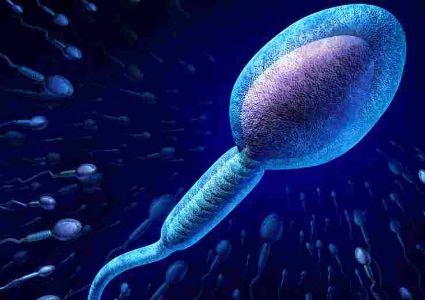Polling

Suggest an important issue not listed in this sub-category (). (Maximum 60 Characters)
Male infertility

The world is experiencing a quiet yet accelerating collapse in male fertility. A recent study found sperm counts fell by more than 51% between 1973 and 2018. The rate of decline since 2000 has been striking, the study found, with an observed 2.64% fall each year in the number of sperm per milliliter of semen — more than twice as large of a decline as that observed since 1978. Advocates say that, if not reversed, this problem could threaten humankind’s survival. For several decades, there has been substantial evidence that many of the chemicals used in our everyday products are harmful to our health. Recent studies have also shown these chemicals are likely to damage men’s ability to reproduce. These chemicals, known as endocrine disrupting chemicals (EDC), disrupt or interfere with our body's endocrine system including the estrogen, androgen and thyroid hormone systems. Any system in the body controlled by hormones can be damaged by these disruptors. Humans and animals depend on healthy endocrine systems to develop and reproduce normally. EDCs are found in plastics, fragrances, pesticides, the linings of food and beverage containers, fire retardants used in carpets and furniture, household cleaning, personal care products and many, many more. Health advocates say endocrine disruptors are now common throughout the world.
Nearly 800 chemicals with known or potential endocrine-disrupting properties have been identified, but little human testing has been done to determine whether or not they pose a health risk. The EPA established the Endocrine Disruptor Screening Program in 1998 but its results have been delayed for more than 20 years. EPA critics claim efforts by business and industry have been responsible for shelving this report. These entities would incur great expense if forced to find substitutes for the chemicals they use in our everyday products. Advocates say the 1976 Toxic Substances Control Act has never been updated to reflect the use of new chemicals in everyday consumer products - which have vastly changed over the past 50 years.
Children are also likely to be harmed by EDCs since their developing brains and bodies are especially vulnerable to EDCs. However, it is the way male fetuses form in the womb that makes men susceptible to genital birth defects. Scientists say a critical period of development is the transition from a fertilized egg into a fully formed infant. These defects include hypospadias and cryptorchidism, risk factors for low sperm quality and testicular cancer. Scientists in Europe, where this phenomenon is more prevalent than here, have coined the term “testicular dysgenesis syndrome” to describe men’s increasing rates of testicular cancer and low sperm counts. European researchers concluded that they are now 99% certain that endocrine disrupting chemicals substantially contribute to male infertility as well as many other health problems including attention deficit disorders, diabetes and obesity.
Researchers have also recently found microplastics present in all 40 semen samples they tested. Other studies have found evidence that microplastics can penetrate the reproductive system, reducing sperm count in mice and disrupting the human endocrine system.
Pending Legislation: S.1685 - Supercomputing for Safer Chemicals Act or the SUPERSAFE Act
Sponsor: Sen. Alex Padilla (CA)
Status: Senate Committee on Environment and Public Works
Chair: Sen. Tom Carper (DE)
Nearly 800 chemicals with known or potential endocrine-disrupting properties have been identified, but little human testing has been done to determine whether or not they pose a health risk. The EPA established the Endocrine Disruptor Screening Program in 1998 but its results have been delayed for more than 20 years. EPA critics claim efforts by business and industry have been responsible for shelving this report. These entities would incur great expense if forced to find substitutes for the chemicals they use in our everyday products. Advocates say the 1976 Toxic Substances Control Act has never been updated to reflect the use of new chemicals in everyday consumer products - which have vastly changed over the past 50 years.
Children are also likely to be harmed by EDCs since their developing brains and bodies are especially vulnerable to EDCs. However, it is the way male fetuses form in the womb that makes men susceptible to genital birth defects. Scientists say a critical period of development is the transition from a fertilized egg into a fully formed infant. These defects include hypospadias and cryptorchidism, risk factors for low sperm quality and testicular cancer. Scientists in Europe, where this phenomenon is more prevalent than here, have coined the term “testicular dysgenesis syndrome” to describe men’s increasing rates of testicular cancer and low sperm counts. European researchers concluded that they are now 99% certain that endocrine disrupting chemicals substantially contribute to male infertility as well as many other health problems including attention deficit disorders, diabetes and obesity.
Researchers have also recently found microplastics present in all 40 semen samples they tested. Other studies have found evidence that microplastics can penetrate the reproductive system, reducing sperm count in mice and disrupting the human endocrine system.
Pending Legislation: S.1685 - Supercomputing for Safer Chemicals Act or the SUPERSAFE Act
Sponsor: Sen. Alex Padilla (CA)
Status: Senate Committee on Environment and Public Works
Chair: Sen. Tom Carper (DE)
Poll Opening Date
December 23, 2024
Poll Closing Date
December 29, 2024
Democracy Rules respects the privacy of your information.
See PRIVACY STATEMENT
See PRIVACY STATEMENT